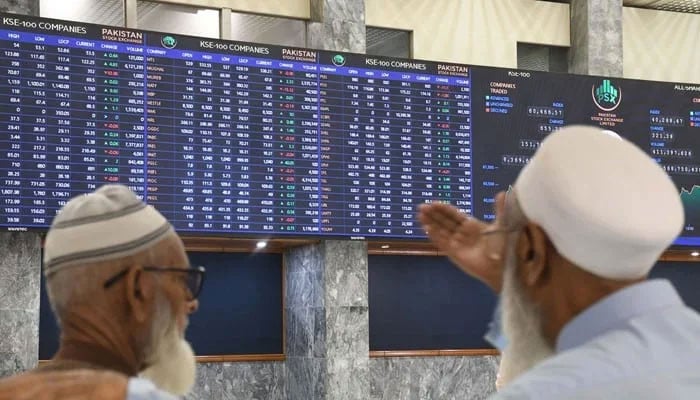
#Imperial #ambitions #Trump #Musk #Political #Economy
Recently, the statements and actions of some top leaders, including US President-elect Donald Trump and Tesla CEO and Trump political lieutenant Elon Musk, have sparked widespread alarm and global concern, including The rhetoric and imperialist ambitions have increased significantly. These actions not only disturb the geopolitical balance but also reflect a disturbing disregard for global cooperation and peace. This shift in tone is particularly resonant in the fields of foreign policy and international diplomacy, raising tensions around the world. The disillusionment created by Trump’s approach to international relations and Musk’s controversial statements has been keenly felt by many.
During his presidency (2016-2020), Donald Trump was often accused of promoting a brand that resonated with a certain segment of the American electorate, often at the expense of diplomatic salience. His America First mantra, aimed at prioritizing national interests, has often been criticized for fueling isolationism and undermining established international alliances. Even more troubling to many observers was Trump’s open hostility to longtime allies and his calls for more aggressive policies globally.
Trump’s aggressive stance on issues such as the status of Greenland, his inflammatory comments regarding the Panama Canal and the restoration of territorial claims have sent shockwaves across the international community. Their threats to claim Greenland, a territory under Danish sovereignty, and their claim to control the Panama Canal, a key international waterway, are emblematic of a new brand of neo-imperialist rhetoric reminiscent of the colonial era. .
Trump has consistently antagonized traditional US allies, including Canada, Britain, Germany and Denmark. These allies, once considered a pillar of U.S. foreign policy, have been the target of hostile rhetoric and unprecedented demands, making it clear that Trump’s approach to international relations lacks empathy for historic allies. will be a sign of deficiency.
His administration’s stance on international conflicts such as Ukraine and Gaza, and the general treatment of the US-Russia standoff, have been characterized by a dismissive attitude that ignores the complexities of international diplomacy. Analysts who had hoped that Trump’s presidency would lead to a reduction in tensions and an end to international confusion have been proven wrong.
Elon Musk, the billionaire entrepreneur behind Tesla and SpaceX, has also been a source of controversy. Musk’s inflammatory remarks, including statements deemed Islamophobic, have caused deep unease, particularly in Muslim communities around the world. His comments – sometimes off-hand or made in jest – have done significant damage by perpetuating harmful stereotypes about Muslims, a group that already faces increasing marginalization in many parts of the world. has been
Musk’s public persona, bolstered by his massive social media influence, exacerbates existing animosities. Some of these recent posts contain errors and treat a widely covered issue as if it was never mentioned.
Elon Musk has ventured into British politics in recent weeks, using his social media platform X to target and spread unfounded rumors about Prime Minister Keir Starmer and other members of his Labor government. In a series of provocative posts to his 211 million followers, Musk has accused Starmer and other Labor lawmakers of enabling Britain’s so-called grooming gangs.
The term refers to a scandal involving multiple incidents of child sexual exploitation in which girls were assaulted and raped by gangs of men in various towns and cities. The majority of the perpetrators were reportedly of British Pakistani origin. Musk’s posts have been riddled with misinformation, presenting a highly publicized problem as if it were a recent discovery. The comments have drawn attention to a harrowing child sex abuse scandal that has fueled a long-running debate over race, immigration and abuse in Britain.
His stances on issues of global importance, including his views on the war in Gaza and his proposals on foreign policy, have provoked reactions, particularly in the Middle East and in Muslim-majority countries. His rhetoric only adds to the polarization and friction between America and the Muslim world, undermining efforts at diplomacy and intercultural understanding.
In a world that requires cooperation across cultural and national boundaries, Musk’s controversial comments and actions can only crystallize the fault lines between the US and its international counterparts. His dismissive approach to the sensitive issues of the Palestinian-Israeli conflict, along with his apparent disregard for the region’s complex history, has added fuel to the fire. These comments have not only deepened existing hostilities, but also undermined America’s moral authority in its dealings with the Muslim world.
The actions of both Trump and Musk reflect what Yale historian Paul Kennedy points out in his seminal work, The Rise and Fall of the Great Powers. Kennedy’s “Imperial Overstretch” thesis argues that great powers throughout history have often overstretched their military and economic capabilities beyond sustainable limits. According to Kennedy, this process leads to a decline in their global influence as they become embroiled in conflict and unable to balance the demands of global hegemony with the need to maintain internal stability.
His confrontational stance towards other nations as well as his acceptance of Trump’s globalism and territorial claims can be seen as a modern manifestation of this concept. Trump’s bold and aggressive approach to expanding US influence, whether in regional disputes like Greenland or the Panama Canal or through his broader foreign policy approach, is a sign of overstretching the US. Puts in a dangerous position. The moves have raised alarm bells around the world, particularly among US allies, who fear the US empire is reaching the limits of its ability to use force.
Prominent political scientist John Mearsheimer and renowned economist Jeffrey Sachs have offered formulations that serve as a valuable corrective to the policies of leaders like Trump and Musk. Mearsheimer’s work on international relations emphasizes the dangers of unchecked power projection and the tendency of great powers to overestimate their ability to control world events.
According to Mearsheimer, US foreign policy should focus on balancing power and managing relationships with other states, rather than overextending itself to dominate. Jeffrey Sachs, on the other hand, has consistently highlighted the need for multilateral cooperation to address global challenges such as climate change, economic inequality and conflict resolution.
His approach underscores the importance of diplomacy and international partnerships, which are often absent from Trump’s rhetoric and Musk’s rhetoric. Sachs’ work challenges the notion that unilateral, aggressive foreign policies can lead to long-term peace or stability. These scholars counter the aggressive neo-imperialism that Trump and Musk seem to be promoting. He advocates a more measured, cooperative approach to global affairs, one that recognizes the limits of power and the importance of fostering partnerships rather than rivalries.
The brand of bellicose and imperialist ambitions promoted by Donald Trump and fueled by Elon Musk is a significant threat to global peace and stability. His actions and statements, which reflect a reckless disregard for the complexities of diplomatic history and international relations, have led to increased tensions with key allies and adversaries.
Theories of imperial overstretch advanced by Paul Kennedy, along with the insights of scholars such as John Mearsheimer and Jeffrey Sachs, offer valuable insights into the unsustainable nature of such ambitions. As the world grapples with the consequences of this new geopolitical climate, it is important for leaders to heed the lessons of history and strive for cooperation and diplomacy rather than wallowing in notions of unchecked power.
The author is a professor in the Faculty of Liberal Arts at Beacon House National University, Lahore.



